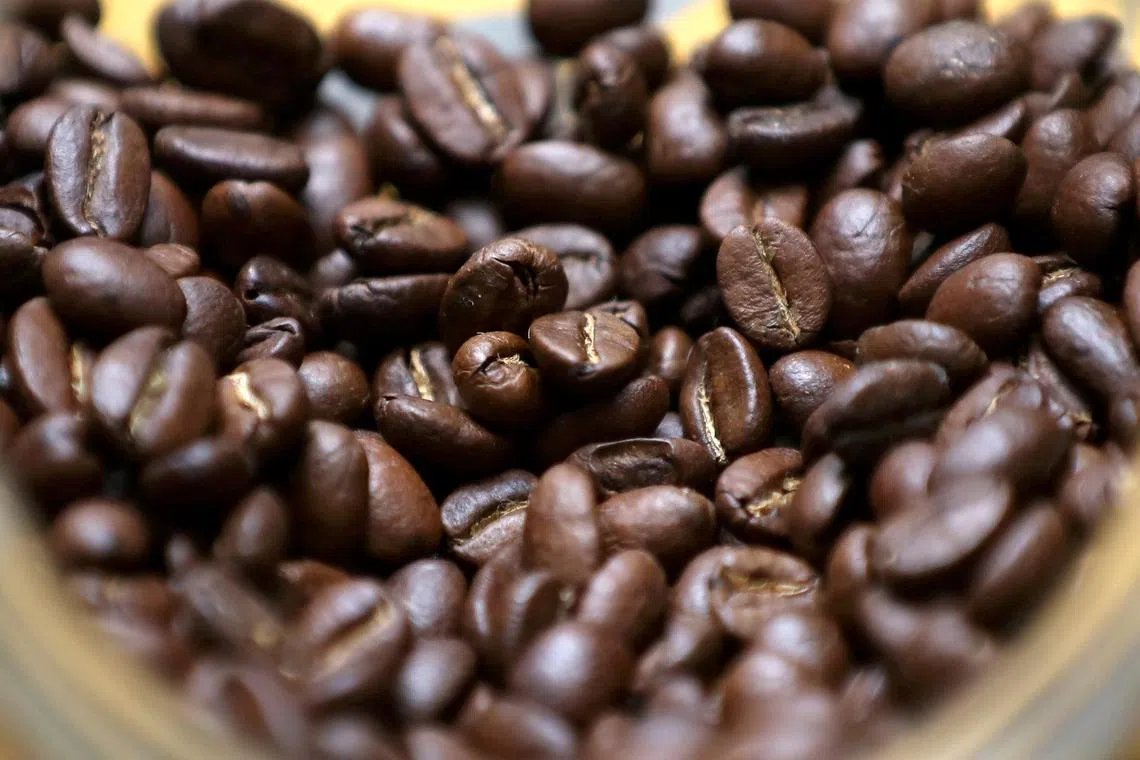Coffee consumption to rise 1%-2% per year through 2030, ICO says
Sign up now: Get ST's newsletters delivered to your inbox

The International Coffee Organisation estimated that about 25 million more 60kg bags would be needed over the next eight years.
PHOTO: REUTERS
HO CHI MINH - Global consumption of coffee is likely to climb by 1 per cent to 2 per cent a year till the end of the decade, according to International Coffee Organisation (ICO) executive director Vanusia Nogueira, who estimated that about 25 million more 60kg bags would be needed over the next eight years.
“We are more conservative now for a short-term projection,” Ms Nogueira said during a conference in Hanoi held by the Vietnam Coffee-Cocoa Association. She referred to all the events the world is facing, including high inflation in Europe, and added that the ICO’s previous forecast that global consumption will rise 3.3 per cent per year on average in the next four to five decades was too “optimistic”.
The global industry will reach a balance in coffee supply and demand in the next two or three years, from the current deficit, Ms Nogueira said in an interview with Bloomberg.
The world needs more of both arabica and robusta beans, but increases in robusta production and demand will be higher, she said. Traditional arabica producers are trying to grow robusta amid global warming, while roasters have also tried to use larger quantities of cheaper robusta in their blends. “If you have robusta with higher quality, consumers won’t feel a big difference in the blends,” she said.
Many markets are looking for fine robusta, Ms Nogueira said at the conference on Sunday. Vietnam is doing its homework on expanding to high-quality robusta production “quite well”, she said, recalling her surprise on tasting three sets of “very good” cups of coffee during a visit a day earlier with a group of international guests to a coffee shop owned by the nation’s second-largest coffee exporter, Vinh Hiep.
The ICO does not see Vietnam’s global dominance of robusta exports being hurt by Brazil’s increased production, because the extra output is to supply the South American country’s soluble industry, the world’s largest, according to Ms Nogueira.
She said coffee-growing nations need to boost consumption domestically for better prices and benefits to their economies.
Vietnam sees domestic coffee consumption rising 5 per cent to 10 per cent in the coming years from the current 272,000 tonnes, including 154,000 tonnes used for instant coffee production, Mr Do Ha Nam, vice-head of the country’s coffee association, said during the same conference.
Mr Nam, who is also chairman of the nation’s top shipper Intimex Group, projected shipments from Vietnam dropping in 2022 to 2023 because of lower production and insignificant carry-over stocks from the previous season. BLOOMBERG


